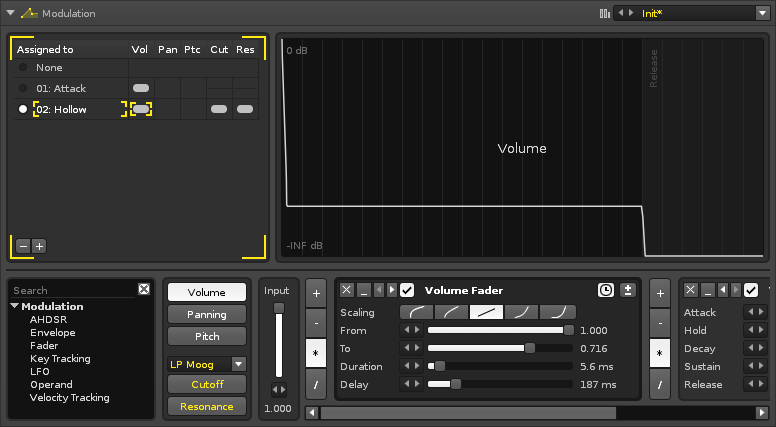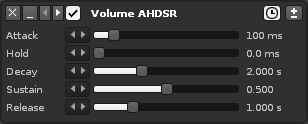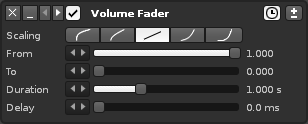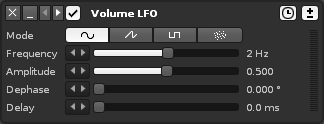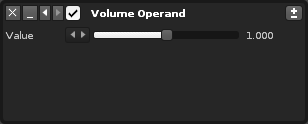Sampler Modulation: Difference between revisions
imported>Achenar No edit summary |
imported>Achenar No edit summary |
||
| Line 1: | Line 1: | ||
= Modulation = | = Modulation = | ||
Adding modulation to samples greatly expands the possibilities of their sound beyond the original audio, | Adding modulation to samples greatly expands the possibilities of their sound beyond the original audio. To achieve this, various devices are chained together to create a modulation envelope. Separate envelopes are used to affect five basic properties of a sample: Volume, Panning, Pitch, and the Cutoff and Resonance of an added filter. These five envelopes are collected together as a Set. Any number of Sets can be created and each instrument has its own unique Set list. | ||
The individual samples of an instrument can be assigned any one of its Sets, allowing different samples be affected by modulation in different ways. A Set can also be assigned to multiple samples simultaneously and any changes made to a Set will affect all linked samples. | |||
Modulated samples are processed polyphonically (each instance of a sound is generated independently). | Modulated samples are processed polyphonically (each instance of a sound is generated independently). | ||
Revision as of 20:03, 25 March 2014
Modulation
Adding modulation to samples greatly expands the possibilities of their sound beyond the original audio. To achieve this, various devices are chained together to create a modulation envelope. Separate envelopes are used to affect five basic properties of a sample: Volume, Panning, Pitch, and the Cutoff and Resonance of an added filter. These five envelopes are collected together as a Set. Any number of Sets can be created and each instrument has its own unique Set list.
The individual samples of an instrument can be assigned any one of its Sets, allowing different samples be affected by modulation in different ways. A Set can also be assigned to multiple samples simultaneously and any changes made to a Set will affect all linked samples.
Modulated samples are processed polyphonically (each instance of a sound is generated independently).
The interface is split into three sections. At the upper-left is the Set list Load & Save and the large section to right graphically shows the results of the device chain. The lower section contains the properties selector and device chain.
Modulation Devices
List on left. Name of device reflects property affected.
Input
Common Effect Layout and Controls
Each effect that you add to the chain has a standard set of buttons to perform common functions:
